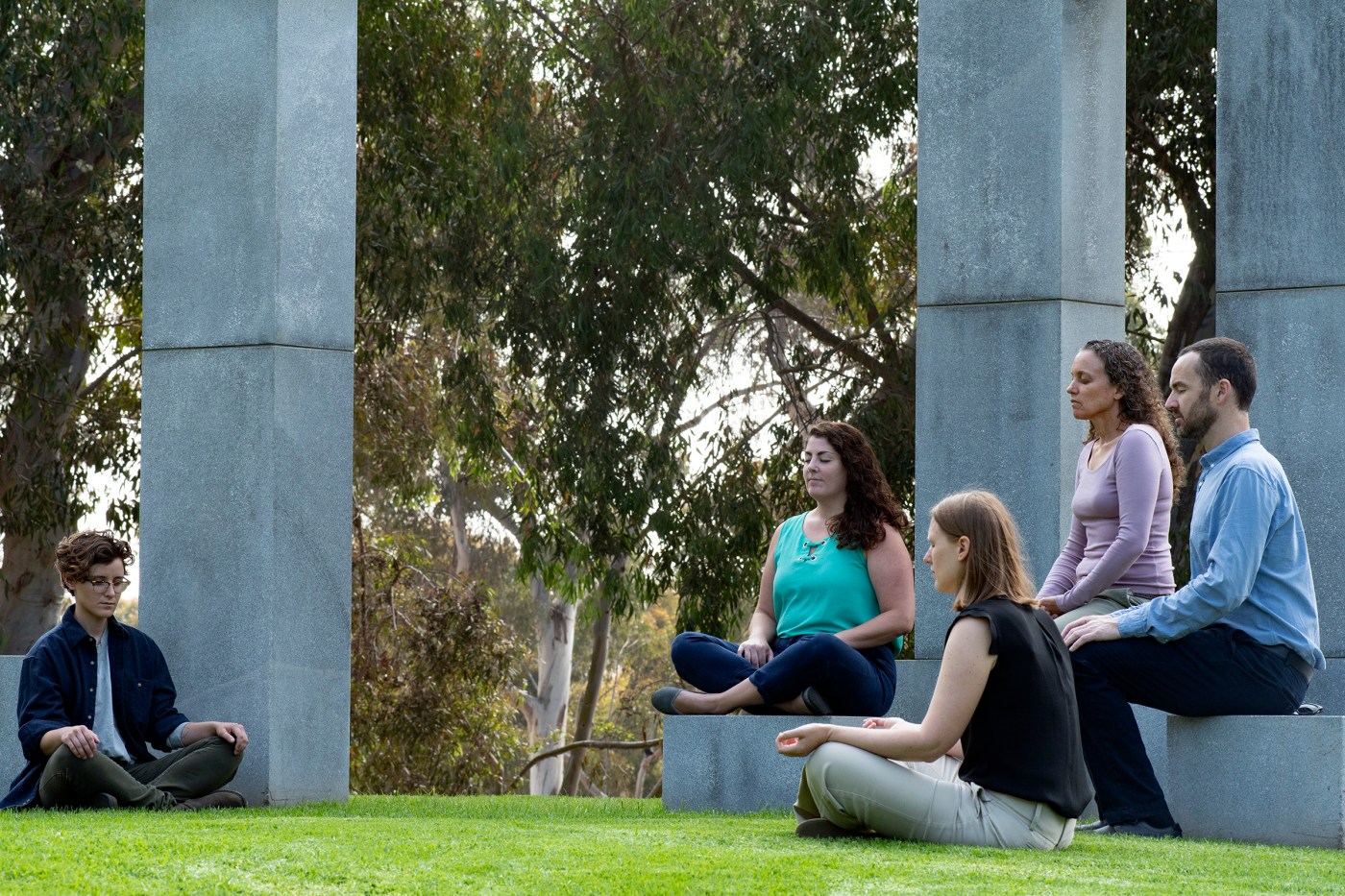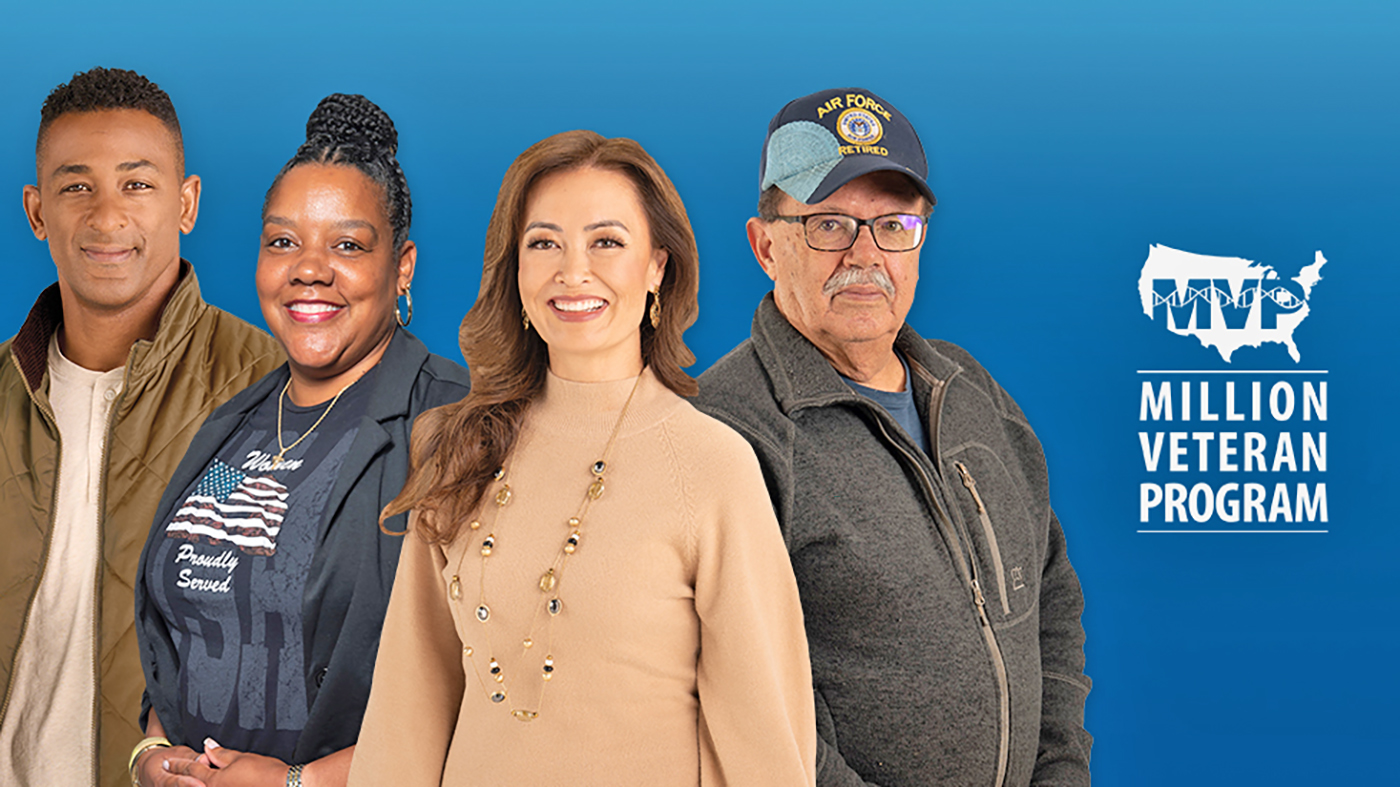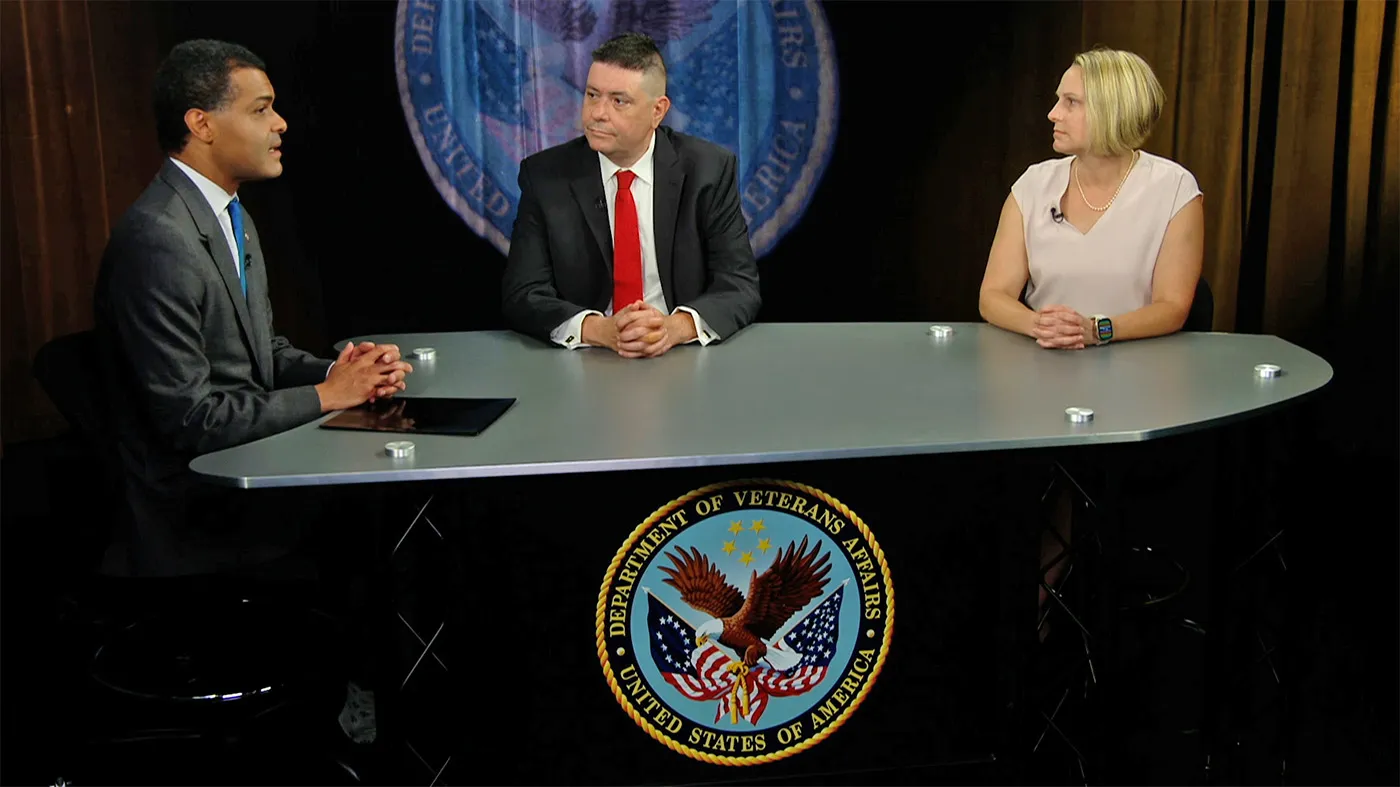About two decades ago, Dr. Ariel Lang was completing her clinical internship and post-doctoral fellowship in clinical psychology at the University of California, San Francisco. One of her mentors was Dr. Paul Ekman, a psychologist and professor at the university.
Ekman was a pioneer in the study of emotions and their relation to facial expressions. He forged a friendship with the Dalai Lama, the traditional high priest of Tibetan Buddhism. The two co-authored a book in which they engaged in a conversation about human emotions from a Buddhist philosophy and the pursuit of psychological fulfillment. The book, published in 2009, stressed the importance of meditation.
Knowing Ekman had been impactful in her career development, Lang eagerly read the book.
“Out of that, I became really interested in the ways in which they were talking about the philosophy behind meditation and how it seemed to match with some of the struggles that we see in people with PTSD,” she says. “With PTSD, there’s a lot of social withdrawal and loss of positive emotions like excitement and joy. Meditative approaches can create the opposite of those things. Compassion-based meditation, which is based on Buddhist tradition but has been adapted so anyone can participate, helps people feel warmth toward others. I became interested in it conceptually based on that.
“[The authors] weren’t thinking about PTSD,” she adds. “But the book just spoke to me in terms of what it might bring to PTSD care. That was definitely my inspiration for starting on a lot of my work.”
Six studies related to meditation
Today, Lang is the director of the Center of Excellence for Stress and Mental Health at the VA San Diego Healthcare System. She’s also a professor at the University of California, San Diego. Her research and clinical work are focused on trauma-related disorders, including the use of complementary and alternative techniques for treating PTSD.
Lang has been involved with six studies related to meditation, including two projects that she led. She is exploring the following types of meditative practices for their potential to ease PTSD symptoms in Veterans:
- Mindfulness: focusing on the present moment, while calmly acknowledging and accepting one’s feelings, thoughts and bodily sensations. Yoga can be thought of as a form of mindfulness because the focus is on pairing movement and breath.
- Mantram repetition: silent repetition of a spiritual word or phrase to foster a sense of peace and relaxation, combined with holding concentration in a single direction and slowing down.
- Transcendental meditation: detaching oneself from anxiety and promoting harmony and self-realization by meditation and repetition of a mantra, a word or sound repeated to aid concentration in meditation.
- Loving kindness meditation: a repetition of wishes for safety, happiness, health and peace for self and others.
- Compassion meditation: a practice intended to cultivate the ability to extend and sustain compassion toward self and others.
Meditation has been linked to a number of benefits, including decreased anxiety and lower cardiovascular risk. But research on the potential benefits of meditation for patients with PTSD has been inconclusive. For some patients, meditation appears to provide strong benefits. But others may not notice a change. Veterans who are interested in meditation, Lang says, should try different types to see which one is most helpful.
The research community, she notes, is just learning about the benefits of meditation as a therapy for PTSD. “Asking about what meditation does for PTSD is like asking about what medication does for PTSD,” she says. “It really depends on which meditation we’re talking about, just like it would depend on which drug we’re talking about. Different meditations potentially do different things.”
More Information
Click here to read the full interview with Dr. Ariel Lang.
Click here to read the sidebar on loving kindness meditation.
Click here to learn more about VA research.
Topics in this story
More Stories
Diverse representation of women in health care research allows MVP to make discoveries for women’s health
Join the Million Veteran Program online. You will have the option to receive an at-home blood sample collection kit in the mail.
VHA's new podcast series, New Horizons in Health, features a candid discussion of psychedelic assisted therapies for Veterans experiencing mental health conditions.







Purple Mountain Institute.org has been recognized by the VA as a non-profit organization serving veterans who are affected with PTSD. This organization offers a 8 week course (ZOOM platform) in MBSR – Mindfulness Based Stress Reduction at no cost to participants. I found it to be highly effective and empowering to live in the present and refrained from dwelling in the pain of the past. Simply put – MBSR works! I hope more veterans will investigate this wonderful non-profit organization. We need not suffer anymore.
I have been using a form of Chan Meditation for the last seven years to help with my combat related PTSD. Along with my prescribed VA medications and my 18 year therapy with my VA Psychiatrist, my VA Psychiatrist now believes that I am ready to be turned over to a VA Mental Health Nurse Practitioner for future PTSD treatment.